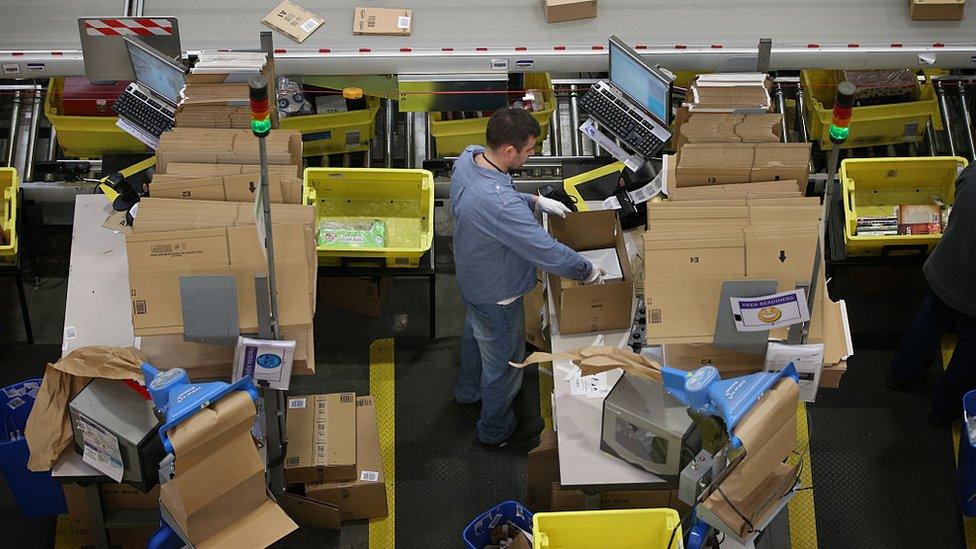Why Amazon's UK tax bill has dropped 50%
- Published
- comments

Amazon has seen a 50% fall in the amount of UK corporation tax it paid last year, while recording a 54% increase in turnover for the same period.
This snippet of news raised eyebrows this morning when it was revealed. So what's going on?
The answer is simple on the face of it.
Taxes are paid on profit not turnover. It paid lower taxes because it made lower profits. Last year it made £48m in profit - this year it made only £24m so it paid £7m tax compared to £15m.
What is more interesting is WHY its profits were lower.
Part of the reason is the way it pays its staff.
Amazon UK Services is the division which runs the fulfilment centres which process, package and post deliveries to UK customers. It employs about 16,000 of the 24,000 people Amazon have in the UK.
Each full-time employee gets given at least £1,000 worth of shares every year. They can't cash them in immediately - they have to hold them for a period of between one and three years.
HMRC loses
If Amazon's share price goes up in that time, those shares are worth more. Amazon's share price has indeed gone up over the past couple of years - a lot. In fact, in the past two years the share price has nearly doubled, so £1,000 in shares granted in August 2015 are now worth nearly £2,000.
Staff compensation goes up, compensation is an expense, expenses can be deducted from revenue - so profits are lower and so are the taxes on those profits.
But surely this extra income for the staff is taxed? Probably not.
HMRC rules allow employees to receive £3,600 worth of shares from their employer tax free every year. Most of these awards are below that threshold.
The employee wins through a tax-free windfall, Amazon wins because it hasn't got to pay any cash out, which leaves HMRC as the big loser.
This is not just allowed by UK tax law - it is required by it.
So, weirdly, the more valuable Amazon becomes, the less tax this particular bit of its business pays.
There is heightened sensitivity around the tax affairs of technology giants such as Amazon, Google and Apple. The challenge of adapting a tax code written for a bygone era to work effectively on technology multinationals who have socked billions away in low tax jurisdictions remains.
But the practice of giving staff shares is widespread, generally seen as a good way to promote loyalty and engagement - and is 100% legal.
- Published27 June 2017

- Published9 June 2017

- Published19 December 2016

- Published9 October 2016
